Best Documentaries of 2015
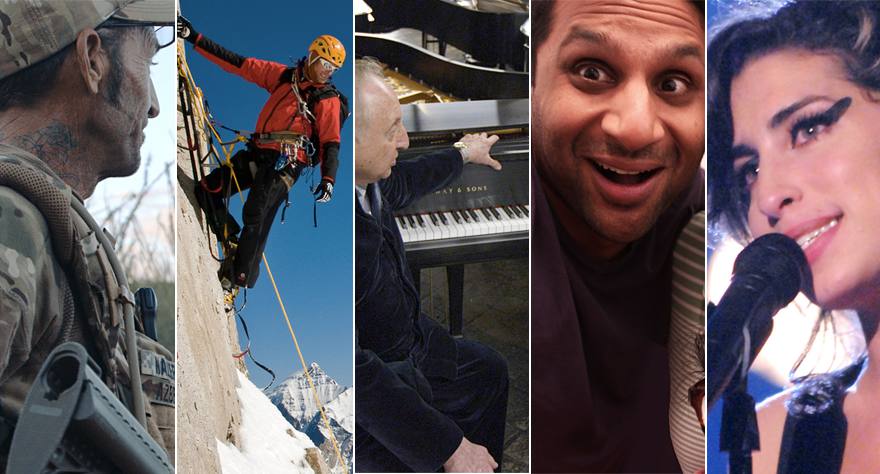
If there was one genre in particular that 2015 excelled in, it would be documentaries. Every year there seems to be a standout or two, but this year the documentary category is loaded with worthy competitors. We’ve compiled the very best documentaries from this year, spanning a wide range of topics from prolific musicians, the War on Drugs, mountain climbing, sleep paralysis, and societal pressures of marriage in traditional Indian culture. Some are told in unconventional ways while others explore unique subjects, but all of these films contain riveting storytelling. The following documentaries are all worth checking out if you haven’t done so already.
Way Too Indie’s Best Documentaries of 2015
Amy

I tend to feel a ping of skepticism whenever a biographical documentary is made about a deceased pop culture persona so soon after their death. It’s hard not to assume it may be exploitive or disingenuous. So I had my doubts going into Amy even knowing Asif Kapadia had already proven himself a worthy documentary filmmaker. What unfolds is perhaps unsurprising, Amy Winehouse’s fame and death being as public as they were, but Amy isn’t the story you think it will be. Instead of yet another tragic addiction-led death of a young and talented star, the film uses the personal footage taken by Amy and her friends to reveal a young woman affected less by fame and more by the ill-intentioned people around her. The same psychology and personal trauma that inspired Winehouse’s remarkable music and fueled her soulful performances is what ultimately broke her heart and led to her death. What makes this stand out as a spectacular documentary is how expertly Kapadia turns the mirror around to show that the public spotlight thrust on Winehouse, and the rather transparent extent of her personal troubles, implies an amount of guilt on her fans and the public. It calls into question larger thoughts on the impact of our habits as consumers on other people’s lives, the sort of existential provocation only the best documentaries can produce. [Ananda]
Bending Steel
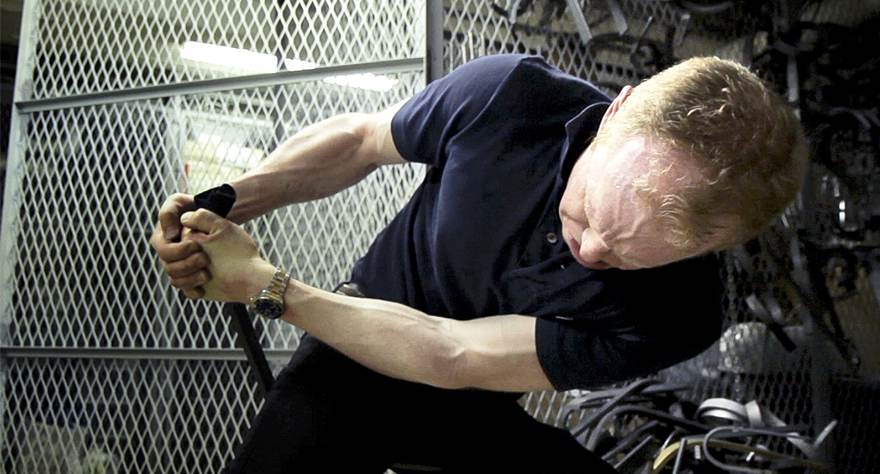
You haven’t heard of Bending Steel, but lucky you: I’ve seen it, I loved it, and I’m here to tell you about it. This weird, dark, startlingly profound documentary follows Chris Schoek, a hermetic New Yorker whose dream is to become a Coney Island strongman, like those bald, bulky, mustachioed guys you’ve seen on vintage freakshow posters. Chris doesn’t fit the bill—he’s lean, soft-spoken and shrivels up in front of a crowd—but he can bend metal with his bare hands, which is pretty amazing. The film tracks his progress as he works on his technique and learns to be a true performer, but the truly special moments involve Chris confessing his distaste for human contact, a troubling trait that may have developed as a result of his tragic relationship with his cold, unsupportive parents. As chilling a character portrait as I’ve seen all year. [Bernard]
Cartel Land

If Denis Villeneuve’s Sicario offers a slick, thrilling look at the bleak and despairing world of the War on Drugs, then Matthew Heineman’s Cartel Land can act as the gritty, real-world side of the same coin. Cartel Land follows two fronts of the drug war, but from the perspective of frustrated citizens instead of government officials: Arizona Border Recon head Tim Foley, and Jose Mireles, the leader of a vigilante group who fight off cartel gangs from taking over villages. Heineman keeps his focus on Mireles for the large majority of Cartel Land, mainly because it’s a remarkable story. Heineman captures incredible footage on the ground, getting in the middle of firefights and showing the intense pressure of living in the cartel wars on a daily basis, and at the same time observes Mireles’ group getting poisoned by the same interests that ensure chaos reigns at the border. Cartel Land is riveting, dark stuff, and its uncompromising look at the drug war as an out of control nightmare is some of the most important filmmaking to come out of 2015. [C.J.]
In Jackson Heights

With age comes experience, understanding, and a widened scope of the world around you. For all the exceptional documentaries Frederick Wiseman has been making since the ’60s, there is a weighted atmosphere in his latest one that could easily mark it as his magnum opus, because of all those things that come with age (Wiseman is 85 years old, by the way). In Jackson Heights is classic in how quickly three hours pass by; a kaleidoscopic look at a neighborhood in Queens, New York that boasts a record of 167 spoken languages. Though most of what you hear is Spanish and English, there’s a colorful enough array of characters from all walks of life that make the cultural hodgepodge the main anchor of the story. In another great year for documentaries, plenty of exaggerated praise drowns out the more humble and less sensationalist of the bunch. From these, Frederick Wiseman’s big-picture-perspective on the contortion and distortion of core, constitutional, American values stands tall. By letting the community of Jackson Heights speak its collective mind, most of the time during revealingly intimate moments, we become immersed with life itself. [Nik]
Listen to Me Marlon

Amy is rightfully regarded as one of the best documentaries of the year, but there is another doc with a similar approach that shouldn’t be overlooked. Listen to Me Marlon takes the recently discovered audio recordings made by legendary actor Marlon Brando and edits them into a look at his wonderful career and troubled inner-life. It doesn’t have the same large media aims as Amy, but perhaps gets more out of its complicated subject. With only the audio recordings to guide the story, it is among the most intimate artist bio-docs ever made. Listen to Me Marlon touches on some of the most crucial moments of Brando’s life, including his early rise as a superstar actor, his infamous Oscar win for The Godfather, and the tragic loss of his grown son. Due to his personal struggles and the bizarre film choices he made late in his life, Brando’s legacy has become easy to jeer, but Listen to Me Marlon is a beautiful tribute to the artist and the man, allowing his own words to tell his story and regain his humanity. [Aaron]
The Look of Silence
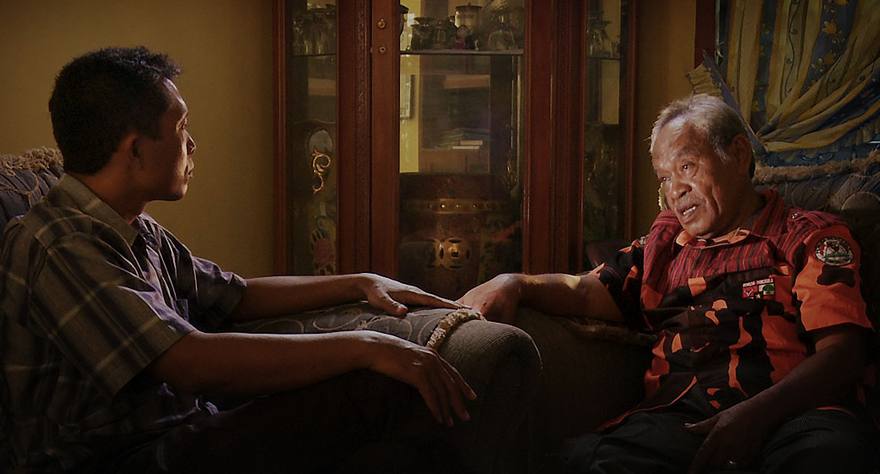
Joshua Oppenheimer’s The Act of Killing is a more eye-catching and artistically adventurous than his follow-up, The Look of Silence, but steep yourself in the latter’s rhythm and atmosphere for its entirety and you’ll discover a movie that will haunt you, sit on your shoulders and whisper in your ear for a long, long time. Like its predecessor, the doc is filled with the stories of those affected by the Indonesian genocide of 1965-66, both perpetrators and victims. This time, we follow a man named Adi, who lost his brother to the slaughter and conducts a string of interviews with the men who were in charge of the mass killings. The stories are as shocking as they were in The Act of Killing, with Adi’s strength, forgiveness and dignity piercing the darkness like a beacon. Most affecting of all is the presence of the dead, who we feel through Oppenheimer’s evocative camerawork, which subtly suggests the deceased are watching Adi’s every move from behind the trees. [Bernard]
Meet the Patels
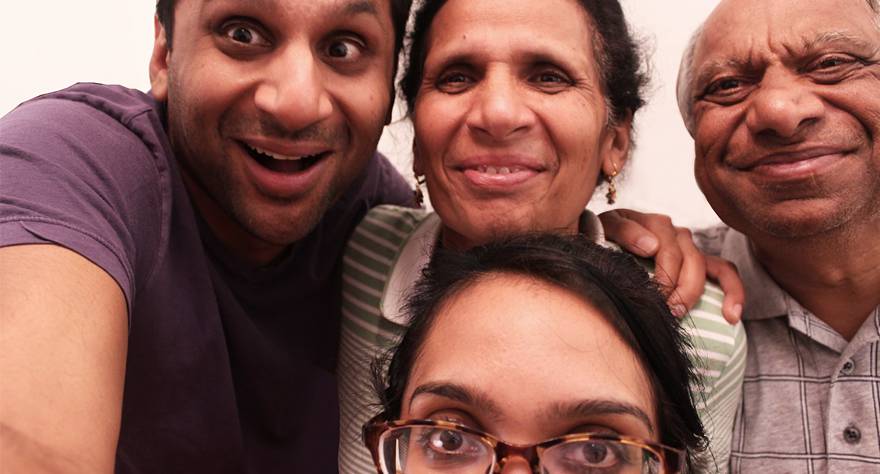
Easily the funniest documentary of 2015—and possibly even the most entertaining—belongs to Geeta and Ravi Patel’s Meet the Patels. The brother and sister duo document Ravi’s difficulties of getting back into the dating world after a long-term relationship fails. But this isn’t a one-note dating documentary. The situation gets complex (and more compelling) due to the clash between Ravi’s American upbringing and his family’s firm stance on traditional Indian culture, particularly the arranged marriage part. But rather than making the film on whether dating or arranged marriage is the best way to find a partner, Ravi gives both methods a fair try, and the results are hilarious. There’s humor found throughout due to Ravi’s comedic, down-to-earth personality, making Meet the Patels charming and a breeze to watch. It also benefits from remarkable editing, by cutting down a ton of home movie footage and combining it with unique animations that periodically replace talking head interviews. The documentary made a big impression on audiences and studio exeutives as well; Fox Searchlight acquired remake rights shortly after its release, and plans to turn it into a narrative feature. [Dustin]
Meru
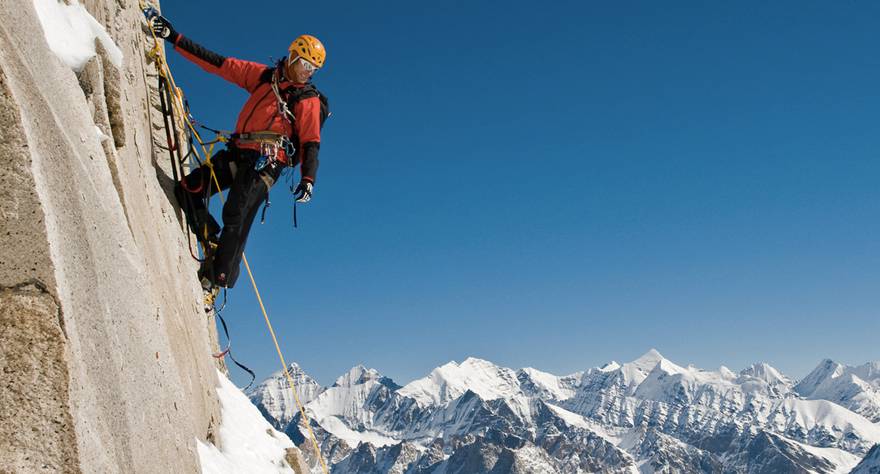
It was a big year for the Himalayas on film. An amazing counterpart to the big budget epic Everest is the true story of a small group of adventure-seekers who looked to be the first to scale one of the massive mountain’s more difficult peaks. Stylistically, Meru doesn’t do anything we haven’t seen before in documentaries—cinematography of the Himalayas is no longer unique, but that doesn’t mean it isn’t just as breathtaking. It does, however, expertly highlight just how amazing their adventure is and, similarly, how extraordinary it is for them to capture it on film. Perhaps I was just supremely in tune with the film, but I found myself incredibly aware of the filmmaking process throughout the film. This makes the journey all the more impressive, given the limited supplies the group brings and the extreme nature of Meru’s specific ascent strategy. And then there is the story, which is properly intense and full of incredible twists and turns. Filmmakers Jimmy Chin (who is a member of the climbing trio) and Elizabeth Chai Vasarhelyi fill in the appropriate backstories to build the climbers as actually interesting characters—this seems simple, but so many extreme climbing films struggle to do this properly. You will root for these characters, not just for the drama of their endeavor, but because the full scope of their human journeys is compelling both on and off the mountain. [Aaron]
The Nightmare

There are scenes from Rodney Ascher’s The Nightmare that I still think about even after several months since my initial viewing. I distinctly remember a chill running down my back when explaining to a friend the subject of this film: sleep paralysis. It’s a strange and terrifying phenomenon where sleepers are unable to move or speak while demonic creatures slowly approach. Ascher has the gall to interview his subjects suffering from sleep paralysis in their own bedrooms at night, which properly sets the mood and makes listening to their stories of night terrors all the more hair-raising. And while hearing people talk about their nightmares is one thing, Ascher adds a cinematic touch by showing re-enactments of these nightmares which really brings the testimonies to life. Some of these visualizations are a bit hokey (nightmares will always be scarier in our minds than on-screen), but it’s hard to shake images like the long shadowy figure with smoldering red eyes and sharp teeth. The Nightmare is the kind of film that sits with you long after the credits roll. [Dustin]
Of Men and War
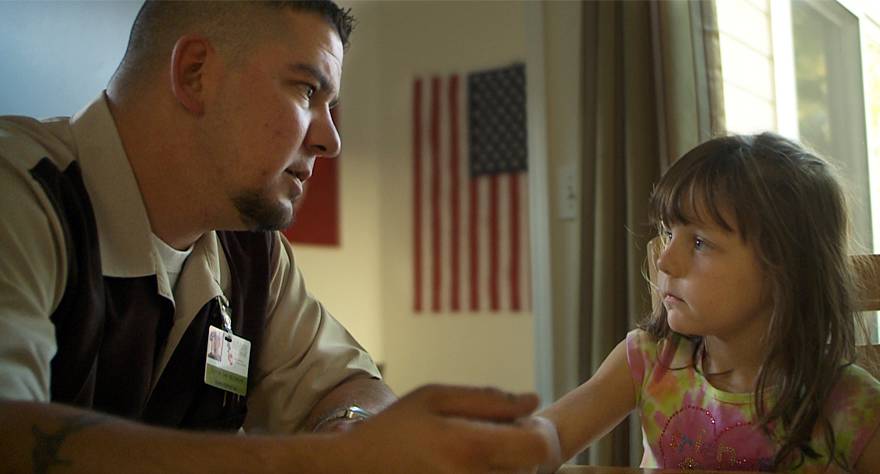
Laurent Bécue-Renard’s Of Men and War stares directly into the wounded soul of a subject that’s rarely acknowledged and never explored. The Pathway Home, a therapy centre in California, helps treat soldiers with PTSD through group therapy sessions. Bécue-Renard films these sessions while also delving into some of the soldiers’ personal lives back home, shooting with a nonintrusive style that brings Frederick Wiseman (a director also appearing on this list) to mind. The therapy sessions provide a disturbing and powerful glimpse into the minds of these men, with each soldier providing a vivid account of the memories that paralyze them. Of Men and War doesn’t offer any answers, and while it ends on a hopeful note, it’s not exactly an optimistic one. Bécue-Renard recognizes the struggle these soldiers are going through is a lifelong process, and while his film doesn’t suggest therapy and emotional honesty are a cure, it does show their importance in providing the chance to deal with the psychological obstacles these men have to face every day. [C.J.]
The Royal Road
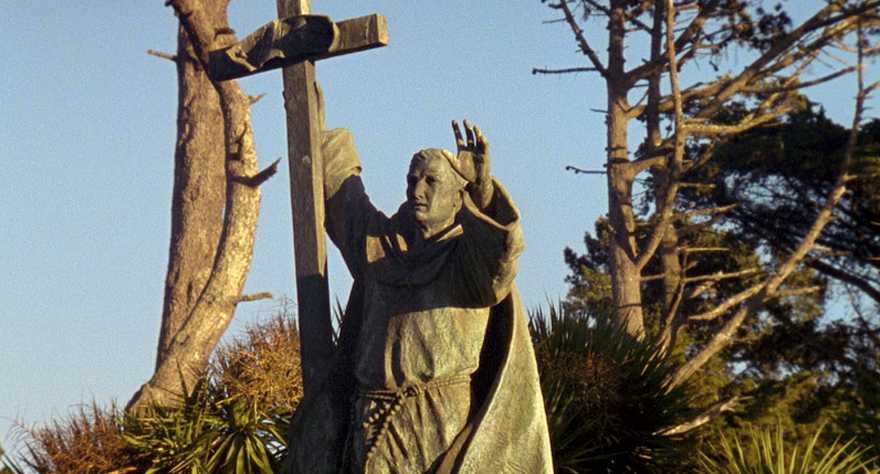
The title of Jenni Olson’s essay film refers to El Camino Real, the former 600-mile road that traveled across the Spanish missions in California. Olson uses this road to delve into topics both historical and personal: the history of California’s formation, an ill-fated trip from San Francisco to Los Angeles to meet a crush, the power of nostalgia, and Alfred Hitchcock’s Vertigo, among other topics. Linking all of these seemingly disparate elements together is Olson’s personal experience and voice, narrating in a dry tone over grainy 16mm footage of California landscapes. Over its short runtime, Olson’s ruminations manage to cohere into a fascinating whole, one that’s impossible to not find relatable in some way. Unlike most recent documentaries, who seem intent on doing nothing more than dictating and informing, The Royal Road is an exception, a film that allows viewers the room to breathe and, more importantly, to think. [C.J.]
Seymour: An Introduction

Wisdom is acquired with age, and Seymour Bernstein, 85-year-old retired concert pianist-turned teacher and subject of Seymour: An Introduction, has plenty to go around. The documentary invites us to sit beside Seymour’s deep well of knowledge and philosophy, serenading us with elegant photography and a measured pace. Interviews with his adoring pupils are insightful and heartening, but nothing compares to the magic of Seymour recalling pivotal moments in his extraordinary life journey. There’s a musicality to the filmmaking that’s beautifully apropos and is doubly impressive considering the filmmaker, actor Ethan Hawke, is relatively young in his career behind the camera. This isn’t just a movie that makes you feel good; it makes you feel enlightened. [Bernard]
